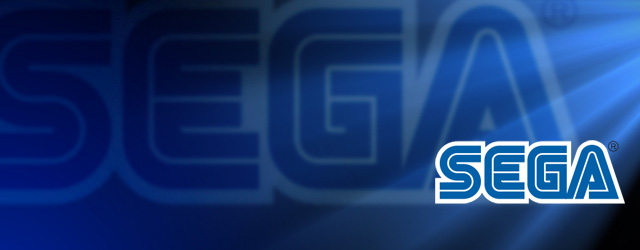
The Face of Sega Changing?
Here’s a press release from Bloomberg, in it, Peter Moore infers that the company might be changing a few years down the line, backing up reports months ago that Sega might get out of the hardware business. Take note of the rather low hardware sales, and some of the business aspects of this story:
Sega Enterprises Ltd., the world’s No. 3 video-game maker, is grasping for a lifeline to rescue the floundering Dreamcast game box.
The embattled creator of game character Sonic the Hedgehog is looking for salvation through a 25-foot-long phone cord that comes with each Dreamcast, an emblem of the Internet initiative Sega has staked its survival on. The company hopes to revive the Dreamcast by linking users around the U.S. with games played on the Web via the modem-equipped console.
To make it sweeter, Sega promises to refund the $200 Dreamcast price to users who sign on to the company’s SegaNet Internet service for two years. The games come online Sept. 7.
Many praise Sega for the bold Internet move — it’s the first to offer sports and action games played online through a console rather than a personal computer. Still, skeptics say the gambit is doomed to fail, heralding a bitter end for the Dreamcast. Slow Internet speeds and other shortcomings could lead users to shun the egg-shell colored Dreamcast for powerful new consoles from rivals Sony Corp. and Microsoft Corp.
“Sega always has really interesting strategies and for so long they’ve been the underdog — you really want them to be able to win once or twice,” said Lisa Spicer, an analyst with ING Barings in Tokyo. “I don’t see it happening this time.”
The stakes are high for Sega: the company has lost $1.12 billion (121.4 billion Yen) the last three years and its shares are near their lowest in 11 years. Sega recently replaced its top executive with 74-year-old billionaire Isao Ohkawa, the founder of CSK Corp., which owns 20 percent of Sega.
If the Internet strategy flops, Sega may have to abandon the 2-year-old Dreamcast in the face of competition from rivals such as Sony, Microsoft and Nintendo Co., maker of the N64 console.
Such a move could signal Sega’s exit from the market for home video game systems. The company dominated rivals in the early- 1990’s, though it has lagged badly since.
While Sega tries to outflank larger rivals with a Web strategy, critics say the company risks alienating users because standard phone lines provide Internet access too slow to accommodate speedy and complex video games.
Others say Sega faces a challenge just to change the behavior of gamers used to simple consoles and competing with classmates and neighbors rather than strangers they meet on the Internet. The phone cords Sega provides are extra long to stretch to living room TVs where most video games are played.
“What for many is mindless entertainment becomes a science experiment,” said Mike Ribero, executive vice president of Midway Games Inc., which makes games for the Dreamcast.
Competition Mounts
Sega’s hurdles are compounded by slow Dreamcast sales.
The system has already been a failure in Japan where gamers have spurned the Dreamcast in favor of Sony’s PlayStation 2. In the U.S., the Dreamcast exceeded expectations following a Sept. 9 introduction, with more than 1 million units purchased in 1999.
Sega has failed to maintain that momentum even as Sony’s supply of PlayStation consoles dwindles while the company prepares for the U.S. introduction of the PlayStation 2 on Oct. 26.
Sega sold 80,000 Dreamcast units in February, 60,000 in March, 43,000 in April and 34,000 in May, according to retail data provided by game publishers.
“There’s a huge missed opportunity for Sega now,” said Robert Lindsey, a senior vice president for marketing at game publisher Capcom Co., the maker of Dreamcast titles such as “Code Veronica.” “The longer they wait to get their message across to the consumer the tougher it will get.”
Sega’s Rebates
Lindsey and other software publishers say Sega can still spur demand by trimming the Dreamcast retail price to $150 from $200, offering consumers a low-cost alternative to the PlayStation 2, expected to retail for about $300.
Instead, the company offers a $50 dollar rebate — though users have to log on via their new Dreamcast to apply. The $200 rebate activates later this year for those who agree to pay $22 a month for Internet access over two years which can be used for games or scaled-down Web surfing. Sega says the rebates will help sell more consoles while convincing consumers to use the online functions.
The company also says the bet on games for online play will lure users to the Dreamcast over Sony and Microsoft, both of which plan to delay Internet functions while offering more advanced consoles that double as DVD players. Sony and Microsoft say they’re holding back because Internet services right now lack the capacity to make online games appealing.
“The same people who are asking us to cut the Dreamcast price are the ones who have been blasting us for losing money the last three years,” said Peter Moore, the president of Sega’s U.S. unit. “The differentiation of the platform is the ability to play online here and now in the narrowband era.”
“We’re going to bet the farm on it,” said Moore, a Liverpool, England-native who formerly marketed sneakers for Reebok International Ltd. and keeps an office fridge stocked with Diet Coke.
Many game industry insiders say Sega’s rivals are doing the right thing by waiting for high-speed connections to become more widespread.
Developers for game maker THQ Inc. scrapped plans for Internet functions with the forthcoming “WWF Rumble” wrestling game after struggling with the speed of Web connections over regular phone lines, Chief Executive Brian Farrell said.
“We just couldn’t find a way to make it fun,” said Farrell, who was wary of sullying the game’s reputation with poor online play.
Sega says Genuity Inc., formerly GTE Corp.’s Internet unit, will provide the network and guarantees the games will work properly.
Online Games
As for the games, Sega so far has given details on seven of the 10 to 12 titles scheduled for release by year’s end that will have Internet capabilities. The company’s own developers are working on three of the games. Other software companies are making the remaining four, preparing online version of games such as “Quake III” designed originally for play on personal computers.
Sega’s games — basketball, football and a title called “Phantasy Star Online” — are similar to regular video games except users can challenge rivals from around the country over the Internet. Making games with online functions increases development costs by 20 percent on average, Moore said.
Once users sign on for games, Sega hopes to offer other Web activities such as music and e-mail. The company figures it needs 220,000 subscribers to run a profitable online service.
Sega is scrambling to drive demand for the Dreamcast in the U.S. to avoid repeating the company’s failure in Japan, where it has been overshadowed by Sony.
“The Dreamcast can’t be compared to the PlayStation 2,” said Toshio Haga, a manager at the Tomihisa Musen game shop in Tokyo’s Akihabara electronics district. Haga typically sells out of PlayStation 2s the day they arrive. Customers buy five to six Dreamcasts in an average week, he said.
Sega’s fate could ultimately rest with new leader Ohkawa, Japan’s ninth largest individual taxpayer last year. Ohkawa took over as Sega president when Shoichiro Irimajiri stepped down on May 26, partly because of poor Dreamcast sales in Japan. Ohkawa has made little secret of his desire to harness the Internet to boost earnings.
“From now on, we are steering toward becoming an Internet company,” Ohkawa said when unveiling the management changes.
Pronouncements like that lead some to speculate Sega will scrap the Dreamcast and press forward as an Internet games developer. Others wonder if the company could be takeover bait for the likes of Microsoft, which needs games for the Xbox console it plans to introduce next year.
Moore, Sega’s U.S. leader, said the Dreamcast is “the fulcrum” of the company’s strategy and Sega has a “huge commitment” to the console.
Still, he acknowledged the uncertainty Sega faces while employing an unprecedented Internet strategy: “No one knows what our company will look like three years from now.”
Some people believe that news reporters will not handle Sega’s situation in a fair and balanced manner. This DCTP discussion focuses on the serious bad press the company has been getting, and some fears that previous reports that Sega was getting out of the hardware business, which was denied, might be true after all. But what do you think? You decide.






